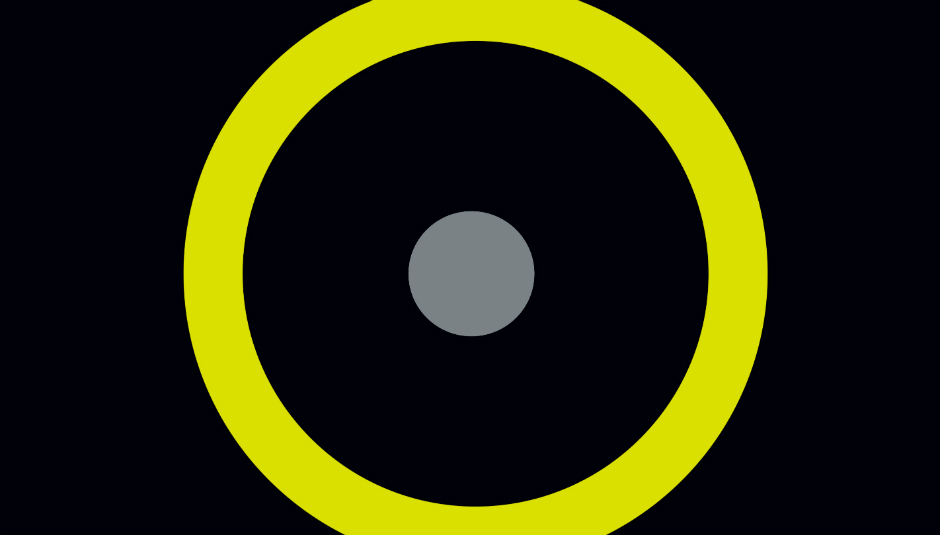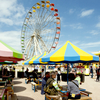When someone mentions the organ, your first thought is probably hearing those drearily sung hymns in church (congregation depending, of course). Over hundreds of years, the organ has become synonymous with classical and church music, and, to its detriment, is not hugely known to be used in the world of contemporary music. Claire Singer wants to change that. It’s been a long time coming, but next month will see the inaugural edition of Organ Reframed – an experimental contemporary organ festival. We sat down with her one afternoon to get more insight into the festival, where it came from, and what it’s hoping to achieve.
In her own words, “Organ Reframed is a brand new festival with the Union Chapel 1877 Henry Willis organ at its centre. Over three days the festival will put the organ firmly in the spotlight as an instrument that not only holds a rich history and extensive repertoire (actually among the largest of any solo instrument) but also one which plays a key role in the development of new music today”
Organ Reframed will take place from 7-9th of October at Union Chapel, and will be the UK’s first-ever experimental organ festival. Organised by Singer, Union Chapel’s Music Director, the festival seeks to expose the organ in a new light and put the instrument firmly on the new-music map.
Through a series of new commissions and multi-media curation, Organ Reframed encourages artists to push the envelope of contemporary music through their own individual explorations with the instrument. As Singer admits, “it’s a hard task trying to change peoples’ perception of the organ, of where it should sit. But actually it should sit in many different places and shouldn’t fit in just one or two boxes”. She mentions that access can be a real issue in terms of incorporating the organ into contemporary music. It’s generally quite difficult to have time to explore the organ unless you have hook-ups with specific churches, and even then it’s often difficult to be given time to experiment – either due to time constraints, politics, or a resistance to opening up the space for experimental music. Organ Reframed subverts this existing divide by giving contemporary artists the opportunity and time to experiment freely and boldly. As Singer stresses: “there are no rules… apart from breaking them”.
As a composer herself, she was first introduced to the organ just over ten years ago when she was commissioned by the Sound Festival to write a piece for organist Roger Williams. Her inital reaction was: “perhaps they had chosen the wrong composer for the job,” as she was known to write quite abstract experimental works. As a composer she never thought about the organ because of her preconceived notions of what the organ was and where it ‘belonged’ within music. Nevertheless once she was introduced to the organ she realised “I couldn’t have been more wrong about the capabilities and unimaginable breadth of the instrument”. Ever since that moment she’s been a little organ-obsessed. “I felt like I had discovered a secret and couldn’t believe that there weren’t more organ works being written by contemporary composers. The way the organ blended with electronics was incredible, a dialogue that I felt needed to be prominent in the development of the current organ repertoire… and for me Organ Reframed is honestly about getting the secret out and telling as many people as possible!” It’s hard to ignore Singer’s enthusiasm for the instrument, speaking about it with the same affection as one would a spouse.
After the commission Singer decided that she was going to start her own organ festival. How hard could it be? Well, as a lone 20-something composer at university, she didn’t have a venue, she didn’t have any money, and she couldn’t even play the organ; in reality the chances of it happening were pretty slim. Shoot forward a decade later, and Singer got the job at Union Chapel as Music Director of the newly restored Henry Willis organ. In celebration of the restoration she designed and executed a programme called the Organ Project which utilised the organ for cross-genre performance and educational workshops across the art forms, engaging kids and adults alike. The project lasted three years, and upon its completion the possibility of the long-dreamt organ festival finally presented itself.
The festival is more than just a collection of gigs though. “I wanted Organ Reframed to be quite broad in its offering, a mixture of everything, portraying the organ in many different facets”. Opening the festival is a film screening of the seminal silent horror Nosferatu, with a new commission to soundtrack the film composed by Irene Buckley. Scored for organ, electronics, viola and cello, this live performance will present Nosferatu in a fresh new light. Saturday kicks off with an organ special of Daylight Music, which is a free regular lunchtime concert at Union Chapel run by Arctic Circle. It will feature artists including Lætitia Sadier, Emilie Levienaise-Farrouch, Angèle David-Guillou and many more. The evening sees an appearance of Spire – an experimental music programme presented by influential audio-visual imprint Touch, involving Charles Matthews, Fennesz, Philip Jeck, Simon Scott, John Beaumont, The Eternal Chord, and Claire Singer herself.
Singer’s appearance will involve a live performance of ‘The Molendinar’ from her debut album on Touch, written specifically for the magnificent organ at Union Chapel, which Singer affectionately names Henry. As Singer explained, “When we have organists come to visit and play, it’s funny because they have all the same reaction: like a little boy or girl at Christmas, they say it’s the Rolls Royce of organs. The organ was purpose built for the space inside Union Chapel (which is architecturally stunning), and although not the largest organ, the sound is beautiful and fits the space perfectly. The commissions on the Sunday evening, written for organist James McVinnie and the London Contemporary Orchestra will give a number of musicians and composers free reign over the Union Chapel organ, and what’s interesting is that they all come from different backgrounds – from Craig Armstrong, who’s written blockbuster scores for films such as the Great Gatsby and Moulin Rouge, to the markedly more left-field experimental artist Mark Fell, who doesn’t regard himself as a ‘musician’. With her approach to curation, Singer states “it’s not about whether someone’s worked with organ before, it’s more about whether I find their work interesting, and that I think they could do something really special with the instrument”.
When asked why she didn’t implement electronic elements in her piece, her response, in short, was: “because for The Molendinar I didn’t need to… the organ can hold its own as a sound source”. What makes ‘Henry’ so special is it’s one of the only hydraulic mechanical organs in the UK and it has mechanical draw-stop action. The latter means that when pulling out the stops (mechanical sliders that control the organ’s timbre) you can play with the control of the wind going through pipe, with the sounds almost sounding electronic (as Singer explains, the organ is actually the world’s first synthesizer – and watching a quick demo of Henry in action, it was really amazing to get a glimpse of the sonic possibilities of the instrument). The piece explores the sonic capabilities of the organ with the space between the stops closed and fully out; “The Molendinar is an intense exploration into the vast soundscape of the organ at Union Chapel. Through precise control of the wind through the pipes the organ can produce extremely beautiful delicate harmonics some almost inaudible”
Additionally, ‘A Knowing Space’, a sound installation by Bill Thompson involving organ pipes, transducers and the space, will be accessible during the weekend. Rounding things off will be a highly anticipated commissions for internationally renowned organist James McVinnie and the London Contemporary Orchestra.
Just a quick glance at the programme will reveal that Organ Reframed is progressive and innovative in what it’s trying to do, and is evidently opening up a vital space within the experimental music scene in the UK. Over the coming weeks Drowned In Sound will be exploring Organ Reframed more deeply through several interviews with some of the festivals most hotly anticipated artists.
It looks like the organ is finally getting its due, from perhaps it’s biggest fanatic: “Just with any other instrument it deserves a life, it deserves that life to be continued and its music to be developed, and that’s what I’m trying to do in a small tiny way.”
Organ Reframed takes place in the Union Chapel from the 7 to 9 October. For more information and to purchase tickets, please click here.






















